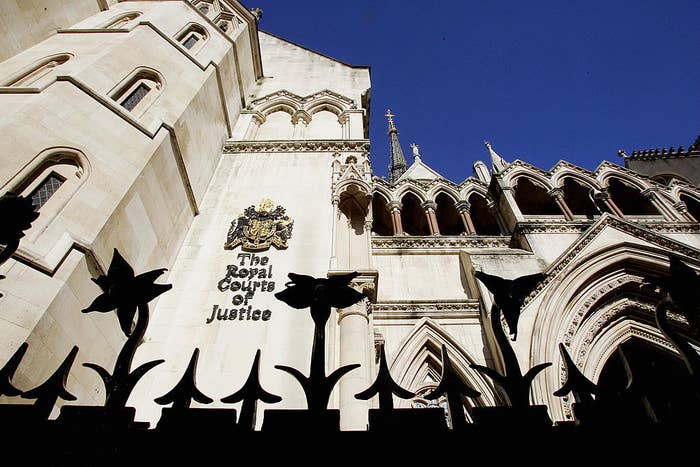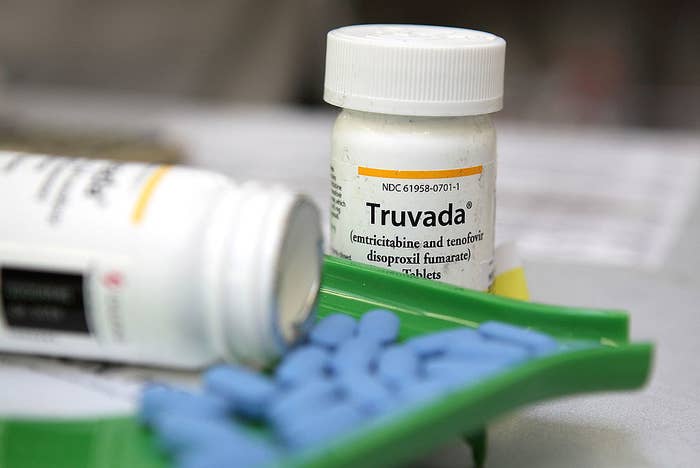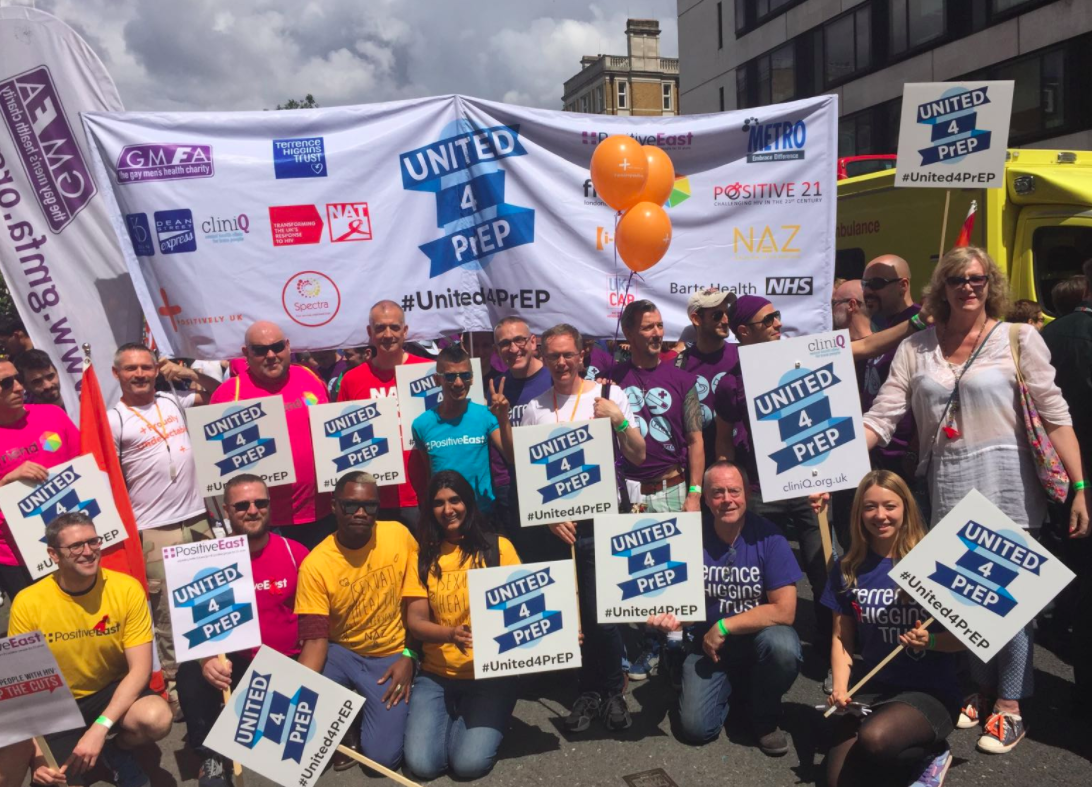
Sexual health campaigners are celebrating after the court of appeal ruled on Thursday that the NHS in England can provide the drug that stops people acquiring HIV.
In a judgment handed down this morning at the Royal Courts of Justice, NHS England failed in its attempt to persuade Lady Justice Kind and Lord Justices Longmore and Underhill that it is not responsible for funding HIV prevention medication.
The court of appeal ruled that NHS England has the power to provide pre-exposure prophylaxis (PrEP) and dismissed the appeal, ordering NHS England to pay the legal costs of the National AIDS Trust (NAT), which brought the original case.
Deborah Gold, chief executive of NAT, hailed the ruling as an important step. She told BuzzFeed News outside the court: "We are absolutely delighted and feel vindicated by the fact that there's now no question that the NHS has the power to commission PrEP. We just hope they make the right decision in terms of whether they do it and we look forward to then being able to turn the tide on the HIV epidemic."
Other leading HIV organisations echoed Gold's reaction to the ruling. “We are pleased that the Court of Appeal has upheld the decision that NHS England is responsible for the funding of pre-exposure prophylaxis (PrEP)," said Chloe Orkin, chair of the British HIV Association (BHIVA).
"The decision is in line with World Health Organisation recommendations and the view of NICE, which has evaluated PrEP using Truvada, finding it to be highly effective...Although this ruling is a positive step we regret that PrEP is still not available to the 17 people who contract HIV each day in this country.”

The Terence Higgins Trust's chief executive, Ian Green, added: "It is time for NHS England to do the right thing and respect its legal duty to consider funding this highly effective treatment. Every day the NHS delays access to PrEP, 17 people are diagnosed with HIV – and the lifetime cost to the NHS for each diagnosis of HIV is £360,000. PrEP must be prioritised and made available now to those at risk."
During a bitter legal battle, NHS England had argued first in the high court and at the appeal hearing in September that it was local authorities that were duty-bound to provide PrEP.
Having lost its appeal, NHS England will now refer the medication – brand name Truvada – back to the standard commissioning process during which the Clinical Priorities Advisory Group (CPAG) will decide if PrEP should be provided to members of the public most at risk of contracting the virus.
Conservative MP Mike Freer, chair of the All-Party Parliamentary Group on HIV/Aids, said of today's ruling: “I am obviously pleased with the outcome of this case. It is a breakthrough and the affect this will have on the lives of those living with HIV/AIDS will be ground-breaking."
Freer added: "But it should never have got to this point. NHS England should have accepted the decision, and their responsibility, when the High Court ruled against them. Even after losing the case NHS England are seeking ways of wriggling out of their responsibility. They should accept they have lost their case and fund this crucial measure, as they fund other important preventive measures.”
NAT brought the legal action in June following NHS England's decision to derail the commissioning process, claiming that prevention fell outside of its remit – despite local authorities also denying responsibility for it.
PrEP is more than 90% effective at preventing HIV, and works by disabling the virus once it has entered a person's body. It is already available in France, Canada, Israel, and the US.
Among the legal arguments brought by the National AIDS Trust was the scientific one: that while NHS England claims responsibility for HIV treatment but not for HIV prevention, PrEP is in fact a form of treatment as it targets the virus on entering the body, dismantling it, rather than preventing it from entering the body, as a condom would.
Among many others within the HIV sector, Gold has described PrEP as a "game-changer" in the fight against HIV/AIDS. Every year in Britain more than 6,000 people are newly infected, and nearly a fifth of people with the virus do not know they have it. Doctors and HIV charities are pressing only for the drug to be made available to those most likely to become infected.

NHS England's decision to refuse to consider providing PrEP, except in a few "test sites", was met with outrage and derision from the HIV sector, both from clinicians and charities. So unanimous was the opposition that, in an unprecedented move, every major HIV organisation in Britain – including the Terrence Higgins Trust and the National AIDS Trust – formed a campaigning group called United4PrEP to fight NHS England and see the drug commissioned.
On losing in the high court in August, NHS England released a press release that was widely condemned by both campaigners and MPs as homophobic and inflammatory. It referred to "high-risk condomless sex with multiple male partners" and claimed that the ruling could impede the commissioning of medication for rare blood cancers and cystic fibrosis.
NHS England said it "strongly denies" the accusations of homophobia and then spent months refusing to comply with a Freedom of Information request from BuzzFeed News to release the documents surrounding the press release.
